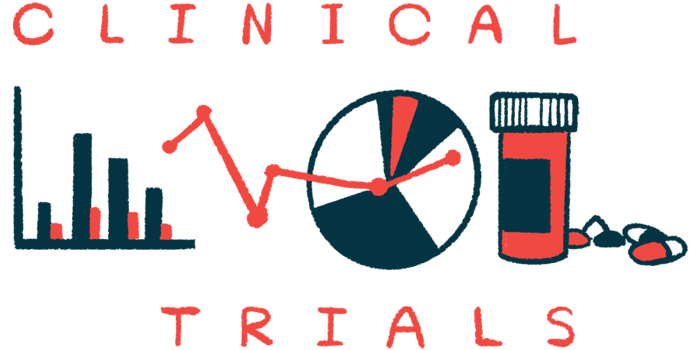ProTEct-MS Trial Data Reinforce Previous Temelimab Studies

Higher doses of temelimab were generally safe and resulted in beneficial trends on key neurodegeneration markers in adults with relapsing forms of multiple sclerosis (MS) who already were on rituximab treatment, according to top-line data from the ProTEct-MS Phase 2 clinical trial.
While the study’s small size prevented the detection of statistically significant changes, the observed effect sizes were similar to those reported in previous Phase 2 trials of temelimab.
“Our key objective with ProTEct-MS was to show that temelimab could bring additional benefits on key markers of neurodegeneration in a population of MS patients already treated with a highly-effective anti-inflammatory [therapy],” Jesús Martin-Garcia, the CEO of GeNeuro, the therapy’s developer, said in a press release.
“This objective has been met, as the data show the synergistic potential of targeting neurodegeneration on top of inflammation,” Martin-Garcia added.
“The fact that we here prove the feasibility and potential added benefit of combining two therapies with different modes of action, is very encouraging,” said Fredrik Piehl, MD, PhD, the trial’s principal investigator and a professor of neurology at Karolinska Institutet, in Sweden.
“Fighting neurodegeneration that drives long-term multiple sclerosis disability is the critical unmet need with current treatment options, and we are pleased to see that the study corroborates findings of previous studies with temelimab,” Piehl added.
GeNeuro now plans to “resume discussions with regulatory authorities and with potential partners to define the best development path combining temelimab and anti-neuroinflammatory treatments to bring the synergistic benefits of temelimab to patients,” Martin-Garcia said.
Temelimab is an experimental antibody that targets and blocks pHERV-W, a specific protein of the human endogenous retrovirus. This virus belongs to a family of viruses thought to account for about 8% of the human genome due to viral infections occurring over several million years.
While most proteins coded by these viral genes do not trigger immune responses in humans, pHERV-W can induce pro-inflammatory responses and has been associated with MS.
By neutralizing pHERV-W, temelimab is expected to prevent MS-associated inflammatory responses that cause damage to myelin, the fatty sheath that covers and protects nerve fibers.
Data from the previous CHANGE-MS Phase 2 trial (NCT02782858) and its open-label extension study ANGEL-MS (NCT03239860) showed that 18 mg/kg of temelimab (the highest dose tested) reduced brain shrinkage, maintained myelin integrity, and slowed disease progression, compared with a placebo.
However, CHANGE-MS did not meet its main goal of significantly reducing neuroinflammation, and doses used in these trials were considered “conservative” by researchers.
Therefore, GeNeuro launched the ProTEct-MS Phase 2 trial (NCT04480307) to evaluate the safety, tolerability, pharmacokinetics, and pharmacodynamics of higher doses of temelimab (18, 36, or 54 mg/kg) against a placebo in 41 people with relapsing forms of MS.
Pharmacokinetics refers to the therapy’s movement into, through, and out of the body, while pharmacodynamics comprises its effects on the body, which in this case concerned changes in neurodegeneration markers.
All participants were experiencing disease progression without relapses after at least one year of routine treatment with rituximab. Rituximab is an antibody-based therapy used off-label in MS that kills B-cells, a type of immune cell involved in the damaging inflammation in MS.
Either temelimab or a placebo were administered directly into the bloodstream once a month for 48 weeks (nearly one year) at the Karolinska Institutet’s Academic Specialist Center.
Newly announced top-line results showed that all three high doses of temelimab were generally safe and well-tolerated, meeting the trial’s main goal.
There were no treatment-related discontinuations, no serious or severe adverse side effects, and no differences in overall clinical or laboratory safety findings between the therapy and a placebo.
In addition, the therapy, when given after rituximab, was associated with beneficial trends on key parameters of neurodegeneration measured by MRI, including a preservation of brain volume and myelin integrity.
“The effect sizes were of comparable magnitude to those previously observed in the CHANGE-MS and ANGEL-MS trials,” GeNeuro stated in the release.
Notably, treatment with rituximab followed by temelimab protected against loss of cortical thickness by more than 50% relative to rituximab alone. Temelimab also improved cortical tissue integrity, potentially reflecting myelin repair.
Given that no dose-dependent response was evident across the three doses, additional data from ProTEct-MS and earlier trials need to be further analyzed to determine temelimab’s optimal dose for testing in future trials.
“We are excited by the results of the ProTEct-MS trial as an important step forward for temelimab in its path to treat MS patients in whom disability progresses despite effective control of inflammation and relapses,” said David Leppert, MD, GeNeuro’s chief medical officer.
“We would like to thank all the study participants for their time and commitment to this important research effort, especially in the difficult circumstances of the pandemic during the past two years,” Leppert added. “We are also very grateful for the Karolinska Institutet’s Academic Specialist Center team whose dedication and commitment made this study possible.”








